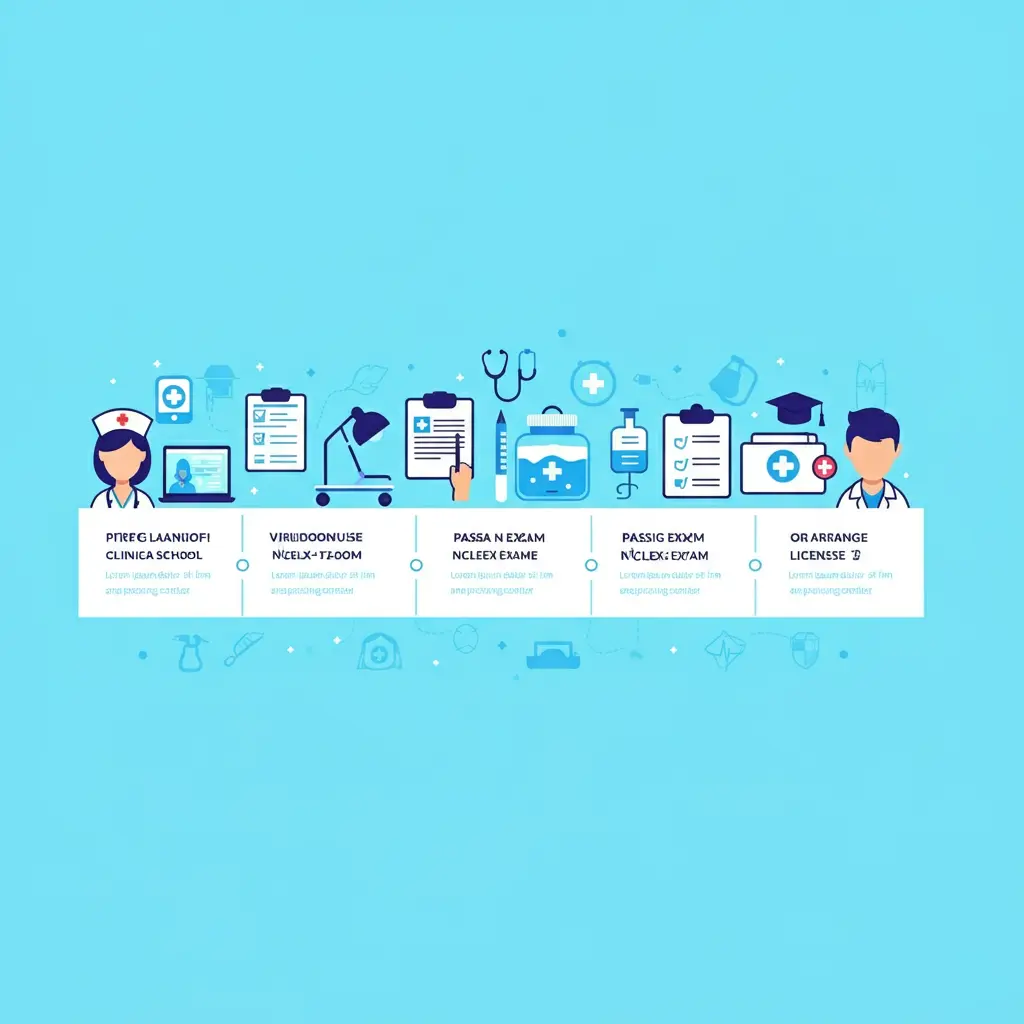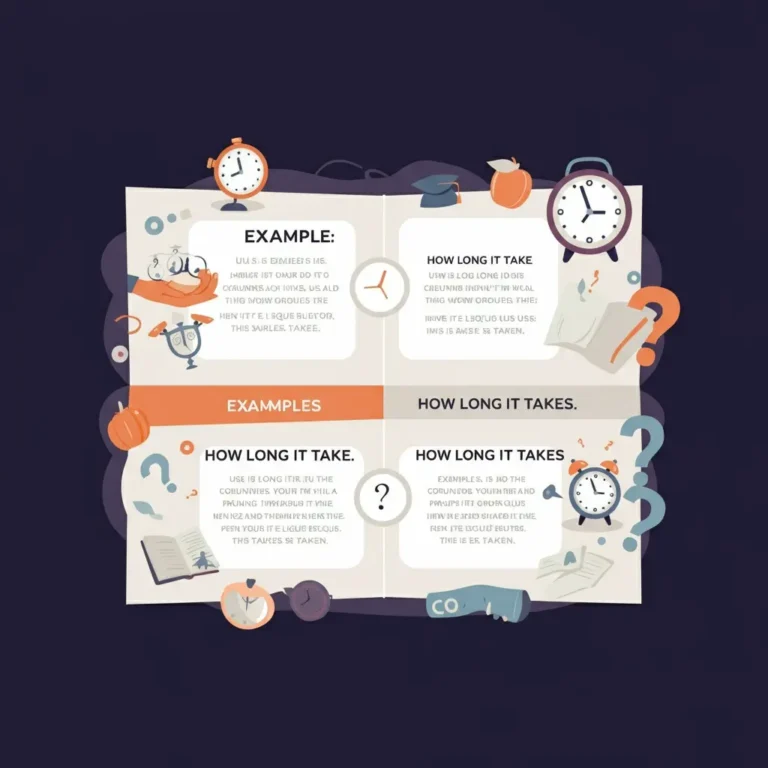How Long Does It Take to Become a Nurse
Becoming a nurse is a fulfilling career choice, offering opportunities to make a meaningful difference in people’s lives. However, the road to becoming a nurse can seem overwhelming, with timelines varying depending on the level of education and specialization you choose. This guide will break down the nursing education timeline, programs, and steps to help you understand how long it takes to achieve your nursing goals.
Table of Contents
Introduction to a Career in Nursing
Nursing is more than just a job—it’s a calling. Nurses provide essential care, educate patients about their health, and offer comfort during difficult times. If you’re considering a career in nursing, it’s essential to understand the pathways available and how long each stage may take.
Overview of the Nursing Education Timeline
The timeline to becoming a nurse depends on the level of education, from basic entry-level qualifications to advanced nursing degrees. While some pathways take as little as 1-2 years, others can extend up to 6-8 years for advanced practice roles.
Steps to Become a Nurse
Here’s a high-level overview of the steps required to start a nursing career:
- Earn a high school diploma or equivalent
A strong foundation in biology, chemistry, and anatomy will help as you transition into nursing programs.
- Enroll in an accredited nursing program.
The type of program you choose—ADN, BSN, or higher—determines the time it takes to graduate.
- Complete clinical training
Real-world training helps you gain the hands-on experience needed to work in a healthcare setting.
- Pass the NCLEX exam.
The National Council Licensure Examination (NCLEX) is required to get nursing licensure.
- Apply for state licensure.
Requirements vary by state, but licensure is essential to start practising as a nurse.
Nursing Degree Options
Associate Degree in Nursing (ADN)
The ADN is the quickest route to becoming a registered nurse. Typically completed in two years at a community college, an ADN provides the essential knowledge and skills to begin a nursing career.
Pros:
- Affordable
- Quick entry into the workforce
Cons:
- Limited career advancement without further education
Bachelor of Science in Nursing (BSN)
A BSN is a four-year program that provides more comprehensive training than an ADN, including leadership, research, and public health education.
Pros:
- Broader career opportunities
- Higher earning potential
Cons:
- Takes longer and is more expensive than an ADN
Advanced Nursing Degrees
For those aspiring to pursue roles like Nurse Practitioner (NP) or Clinical Nurse Specialist (CNS), earning a Master of Science in Nursing (MSN) or a Doctor of Nursing Practice (DNP) is essential. These programs typically require 2-4 additional years.
Nursing Certification Process
After completing your education, you’ll need to pass the NCLEX exam to become certified. The duration of prep depends on your study habits, but most candidates prepare in 3-6 months. State licensure follows the successful completion of the NCLEX.
Time to Become a Registered Nurse
The timeline to become a registered nurse depends on the program you choose:
- ADN Program: Approximately 2 years
- BSN Program: Approximately 4 years
For those in an accelerated program or with prior qualifications (e.g., paramedics), the time can be shorter. Pursuing advanced degrees for specialized roles will increase the duration.
Nursing Programs Duration and Requirements
Before enrolling, it’s crucial to understand the prerequisites. Common requirements include:
- High school diploma or equivalent
- Strong foundation in sciences and math
- Criminal background checks and health screenings
Time estimates include classroom learning and clinical training.
Clinical Training in Nursing Programs
Hands-on clinical experience is an integral part of your nursing education. This phase usually takes a few months and is conducted at hospitals or healthcare facilities.
Accelerated Nursing Programs
Accelerated programs are designed for those who already hold a bachelor’s degree in another field. These programs can be completed in 12-18 months, making them an excellent option for career changers.
Nursing Career Pathways
Nursing offers diverse career pathways. Depending on your interests, you can specialize in areas like paediatrics, oncology, or geriatrics or pursue leadership roles.
Continuing Education for Nurses
Once licensed, nurses must stay updated on medical advancements. Continuing education can include certifications in specific fields, such as critical care, or further academic pursuits.
Exploring Nursing Career Opportunities
A career in nursing can take you anywhere—from hospitals and clinics to schools and research settings. With the demand for nurses steadily rising, the opportunities are vast.
Final Thoughts on Becoming a Nurse
While becoming a nurse requires time and dedication, the rewards are well worth it. From the educational steps to licensure and beyond, each phase prepares you for a fulfilling and impactful career.
FAQs
How long does it take to complete a nursing degree?
Typically, an ADN takes 2 years, while a BSN takes 4 years to complete.
Can I become a nurse without a degree?
Entry-level positions such as Licensed Practical Nurse (LPN) may not require a degree, but registered nurses must hold at least an ADN.
What is the NCLEX exam?
The NCLEX is a standardized test required to gain nursing licensure in the U.S.
Are there online nursing programs?
Yes, many institutions offer online programs, but clinical training must be completed in person.
What is an accelerated nursing program?
An accelerated program allows students with a prior bachelor’s degree to complete a nursing degree in a shorter timeframe.
What are the prerequisites for nursing school?
These can include a high school diploma, coursework in sciences, criminal background checks, and specific health requirements.
How much does nursing school cost?
Costs vary widely depending on the type of program and institution.
By understanding the timeline and requirements, you can plan your nursing career effectively and achieve your professional goals.







